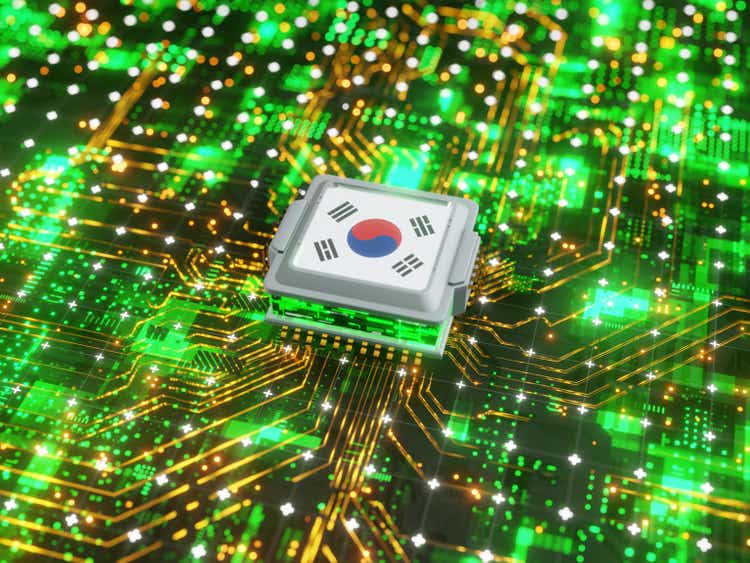
hh5800/iStock via Getty Images
South Korea is planning to set up an aid package for chip investments and research worth over 10T won (about $7.3B), Reuters reported, citing the country’s finance minister.
The Asian nation’s government intends to disclose details of the program aimed at chip materials, equipment manufacturers, and fabless companies across the semiconductor supply chain, Finance Minister Choi Sang-mok said on Sunday, according to the report.
The support package could include offers of policy loans and the establishment of a new fund financed by state and private financial institutions, Choi told executives of domestic chip equipment manufacturers, the finance ministry noted.
South Korea is also building a mega chip cluster in Yongin, which, according to the country, is the world’s largest such high-tech complex.
In January, South Korean President Yoon Suk Yeol had said that he would extend tax credits on investments in the local semiconductor industry to boost employment and woo talent, the report added.
The U.S., China, the EU and Japan are among countries and regions which have stepped up efforts to boost domestic chip manufacturing to stay ahead in the AI race.
Under the CHIPS Act — which aims to increase U.S. semiconductor manufacturing and research, especially in advanced semiconductors — several companies have inked preliminary agreements with the U.S. Department of Commerce to get funds.
Intel (INTC) was awarded nearly $20B in grants and loans, award Micron Technology (MU) with $6.1B in grants, Taiwan Semiconductor Manufacturing (TSM) with up to $11.6B in grants and loans, Samsung Electronics (OTCPK:SSNLF) with up to $6.4B in grants.
In March, it was reported that China was planning to raise over $27B for its largest chip fund yet. China’s push for self-sufficiency comes on the heels of U.S. and allies including the Netherlands, Germany, South Korea and Japan tightening curbs on the Asian country’s access to advanced semiconductor technology.
